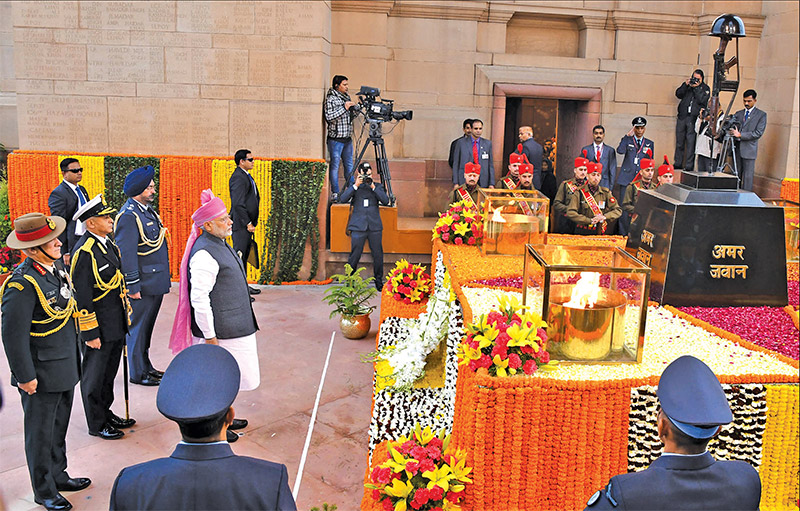Four years of rhetoric has rendered India even more insecure in its own backyard
Pravin Sawhney and Ghazala Wahab
The report card of the Modi government on national security has been less than encouraging. The June-August 2017 Doklam crisis resulted in the first ever successful military coercion by China; Beijing managed to browbeat India without firing a shot. Similarly, the September 2016 surgical strikes against Pakistan showcased India’s trepidation for even tactical-level escalation. Since most people would not believe these consequences to be true, it goes to the Modi government credit to have successfully sold illusions.

When Prime Minister Narendra Modi assumed office in May 2014, it was believed, that national security would get a shot in the arm. Given their ultra-nationalistic rhetoric, BJP-led governments are expected to deliver better on national security. Since Modi come to power with a thumping majority and considering that the 2014 General Elections were fought under his personnel tutelage, he had an unprecedented mandate to shape the national security narrative. Moreover, Modi, in the run-up to the General Elections, raked up the China issue in his public meetings, something that had never been done before. By cautioning China to desist from its ‘expansionist tendencies’, he signalled that he would order a robust response to Chinese machinations if voted to power.
Once in power, pretentions of national security being a priority were upheld for a while. Modi started meeting the three service’s chiefs once a month; it was reported that this exercise was meant to fast-track infrastructure development and procurements (under Make in India) for modernisation. Not only did this exercise soon fizzle out, it was left to the National Security Advisor (NSA) to prioritise and decide on national security matters. The Prime Minister soon stopped meeting the service’s chiefs, formally or informally on regular basis; this when both China and Pakistan give enormous weightage to military power in their foreign policies.
This was a mistake considering that this single issue had helped catapult Prime Minister Indira Gandhi as India’s most successful leader on national security. Unlike her father, Mrs Gandhi not only listened to military leaders patiently, she supported them wholeheartedly. Her acceptance of the army chief, General Sam Manekshaw’s brutally candid advice to delay the 1971 war by six months (overriding her political exigencies) which won the day for India, is now part of folklore.
A lesser known example is about border management against China. The army chief, General T.N. Raina had set up an expert committee in June 1975 comprising three officers — K. Sundarji (later army chief), K.V. Krishna Rao (later army chief) and M.L. Chibber — to suggest a plan to build infrastructure, viable forward communications and defensive positions to ensure a robust defensive posture against China. This was meant to correct the military folly of India’s forward policy that was the trigger for the 1962 war. The expert committee’s report was presented by army chief General K.V. Krishna Rao to Prime Minister Indira Gandhi in June 1981. Overriding concerns of the Indian intelligence agencies who argued that improving border posture would be seen as a provocation by China and could lead to war, she listened to General Krishna Rao.
In an interview to FORCE (December 2004), General Krishna Rao said, “I must say that Prime Minister Gandhi had an excellent understanding of defence matters. She asked me how much time all this would take as we had no roads and we were required to build defences for big formations like brigades (3,500 troops in each brigade). I said that the whole plan would take eight to ten years to implement. She asked what would be the implication of this action. I replied that, this could lead to war. So what? She asked. I said we will fight it out. I told her that if the Chinese tell us to stop, we should not do so but continue building our defences.”
You must be logged in to view this content.

